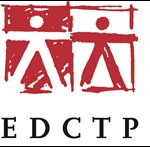HIV Vaccine Research
Statens Serum Institut (SSI) is doing research in immunity against virus using especially HIV-1 (a chronic virus) and pandemic influenza A (an acute virus) as models relevant for public health.
The purpose is to help understand the protective immunity induced during virus infections and during vaccinations using different vaccine principles and modalities. We are contributing to the development of new innovative vaccine principles against these model virus diseases and similar virus diseases.
SSI also develops novel molecular biology methods for diagnosis and genotyping of all human disease related virus, especially emerging and bio-terror related virus.
HIV-1
With more than 40 million HIV infected individuals in the world (most of which are in Africa) this pandemic is out of control and there is a great need for development of therapeutic and prophylactic vaccines. The HIV infection does not leave life-long immunity but leads to break-down of the immune system, opportunistic infections and death. If left untreated, the patient’s immune system can only partly control the infection. The purpose of vaccination is therefore to induce a broader, stronger and more rationally directed immunity than the one induced by the natural infection. Even though patients in Denmark are offered anti-retroviral medicine (ART) when the patient’s CD4 count drops below 200-300/microliter, the medication does have unwanted side effects and problems. When ART starts it is daily and life long. Thus there is a need for new rational vaccines and therapies that may help controlling the virus and prolong the period until ART or AIDS.


